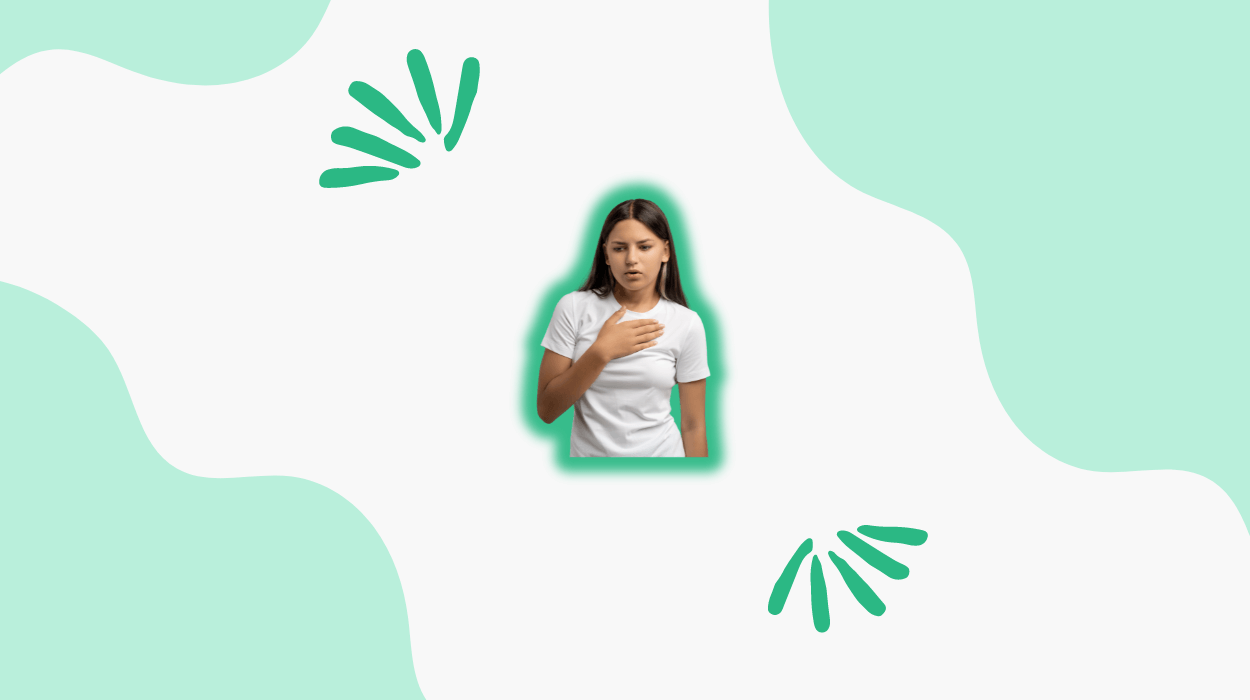

Occasional or situational episodes of anxiety are a normal occurrence in life. However, prolonged anxiety or people with anxiety disorders may encounter excessive and frequent anxiety, fear, or panic in everyday situations.
Anxiety is your body’s response to fearful situations. You might believe you have anxiety when you face uneasiness or nervousness. However, having an anxiety disorder and feeling worried or anxious are two different things.
You might have anxiety due to various reasons like physical and mental health problems, a history of trauma experience, or genetics.
Healthy distractions, tracking anxiety flareups, and regular workouts are some coping mechanisms to subside anxiety-induced concerns.
These coping strategies may encompass physical, cognitive, and emotional adjustments tailored to personal preferences and needs.
This article will list some of the best ways to lower anxiety flare-ups and frequency. It will also give insights into common anxiety symptoms and provide answers to general queries about anxiety.

When anxiety feels like it’s taking over, finding ways to shift your attention might help manage those intense feelings. Those who use distraction therapy may display a greater reduction in anxiety symptoms and improved cognitive well-being.
Engaging in physical activities may help release endorphins, improve mood, and reduce anxiety. You may undergo physical activities like brisk walking, yoga, running, or doing a quick workout session.
Explore activities like writing, painting, drawing, or crafting, which could help take your mind off anxious thoughts.
Practice mindfulness by focusing on your senses. Take a moment to notice the sights, tastes, sounds, smells, and textures around you. Doing so might help ground you in the present moment and might shift your focus away from anxious thoughts.
Connect with a friend, family member, or loved one through social interactions or spend quality time with them. Doing so may help you alleviate feelings of loneliness or isolation, as a lack of social interactions may potentially induce anxiety flare-ups.
As per a study by Donald A. Rakow and Naomi A., spending time in nature may positively impact mental health. It may help mitigate stress/anxiety levels and promote cognitive well-being.
Walking in a park or green space can help you disconnect from stressors and find peace in the serenity of natural surroundings. Nature’s sights, sounds, and smells may help relax the mind and improve mental clarity.
Exposure to natural light and fresh air during a walk may raise serotonin levels, known as the “feel-good” hormone. Such effects could help combat feelings of anxiety and depression.
Therefore, venture outside, breathe in the fresh air, and allow the healing power of nature to guide you toward a calmer, more balanced state of mind.
Grounding techniques may help bring awareness to the physical environment and promote calmness and relaxation. Here are some grounding exercises you could try:
You could also practice the 5-4-3-2-1 technique to further ground yourself:
Another useful grounding technique is the 3-3-3 rule:
These grounding techniques could help manage anxiety and promote a sense of presence and calmness in challenging moments.
Developing and adhering to a consistent exercise routine might alleviate elevated anxiety/stress and positively impact mental wellness.
Regular exercise could improve mood by elevating endorphins or happy hormones. Such a mechanism may soothe the mind and help minimize anxiety flareups.
Socialization might relieve stress, encourage laughter, promote a sense of togetherness, and decrease feelings of loneliness. Research indicates that social connectedness may enhance your ability to cope with stress in the long term.
Research suggests that documenting anxious thoughts can help people manage their emotions more effectively.
A 2018 study found that participants struggling with high anxiety and medical conditions experienced decreased anxiety symptoms after just one month of journaling three times a week.
It might serve as a form of self-therapy, promoting self-reflection and self-awareness. It could help you recognize and challenge negative thinking patterns, leading to a more positive mindset.
As you continue to journal, you may also notice improvements in your overall mental well-being and reduced frequency and intensity of anxious feelings.
Integrating specific foods and supplements into your diet may work as part of a comprehensive approach to managing anxiety.
However, consult a doctor before modifying your diet or adding supplements to avoid adverse health interactions.
The following foods and supplements have been researched for their potential anxiety-reducing properties:
Getting adequate physical activity, ensuring proper sleep, and following a non-sedentary lifestyle may help minimize anxiety frequency and severity.
A research study suggested that people with physically active lifestyles have a 38% lower likelihood of developing anxiety symptoms than those with sedentary lifestyles.
Regular exercising may enhance willpower and concentration, potentially improving some anxiety symptoms.
Integrating activities like walking, yoga, jogging, or dancing into your routine could help release endorphins and reduce feelings of anxiety.
High-intensity interval training and resistance exercises may help burn calories and provide cognitive benefits.
Daily meditation could help reduce cortisol levels, the hormone responsible for stress, leading to a more relaxed state of mind. The practice may increase self-awareness, reduce stress, and diminish mental fatigue.
Meditation may help you cultivate mindfulness, allowing you to be more present in the moment. It could enhance emotional regulation, making it easier to navigate anxiety-inducing situations calmly and clearly.
Meditate by simply closing your eyes and emptying your thoughts. You could use online videos, meditation apps, or guided meditation sessions if needed.
| Benefits of Meditation | Description | Tips for Effective Practice |
| Enhances mental clarity | Clears the mind of cluttered thoughts | Find a quiet space to meditate |
| Promotes emotional resilience | Helps in managing stress and emotions | Set a regular meditation schedule |
| Increases self-awareness | Encourages reflection on thoughts and feelings | Focus on your breath or a mantra |
| Reduces anxiety symptoms | Calms the mind and body | Practice deep breathing techniques |
| Improves overall well-being | Enhances relaxation and inner peace | Allow yourself to let go and relax |
Different psychotherapies may help people understand their anxiety and develop strategies to cope with it.
One prominent approach is cognitive behavioral therapy (CBT), which teaches new ways of thinking and reacting to anxiety-inducing situations. Research also supports the effectiveness of CBT in managing anxiety disorders.
Animal-based therapies may reduce anxiety signs, too. Petting may stimulate oxytocin release, which helps reduce anxiety/stress levels and enhances mental well-being.
Mindfulness-based intervention therapies may combine meditation and yoga for anxiety management. Such practices may increase empathy and help subside anxiety symptoms.
Therapy may help manage anxiety symptoms and improve overall well-being. It includes individual counseling, group therapy sessions, or specialized interventions to support anxiety management.
Thought exercises may help shift your perspective and ease feelings of anxiety. These exercises could help you challenge negative thought patterns and cultivate a more balanced mindset.
Here are some common symptoms indicative of anxiety:
These symptoms of anxiety could vary in severity and might interfere with daily activities, relationships, and overall quality of life. If anxiety significantly impacts your well-being, seek support from a mental health expert.
Identifying potential anxiety triggers, developing healthy coping strategies, and consulting a mental health professional could aid in anxiety management.
Natural remedies like taking chamomile, using ashwagandha, and drinking herbal teas before bedtime may impart relaxation and help minimize anxiety flare-ups.
Relaxation exercises, journaling, mindfulness practices, and getting sufficient sleep may also help reduce anxiety.
Follow the tips in the article and find what works best for your anxiety management journey. Severe cases of anxiety, such as PTSD, phobias, or panic disorders, may require medical consultation and intervention.
Tyler Read earned an undergraduate academic degree from Sonoma State University, California and is a certified personal trainer (CPT) with NASM (National Academy of Sports Medicine). With over 16 years of experience, Tyler has trained clients both online and in-person.
He is passionate about helping others turn their love for fitness into a career. Tyler has worked with many local and commercial gyms before establishing his successful private personal training business, which he continues to operate.
